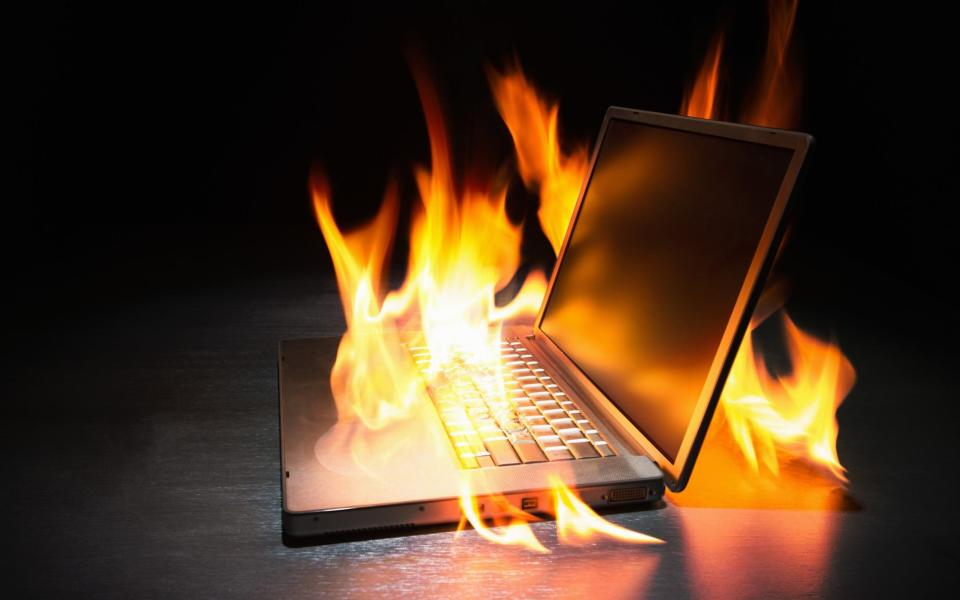'Zombie' batteries cause rising number of waste fires and explosions

“Zombie” batteries improperly thrown away are causing hundreds of fires each year, recycling groups have warned.
A rising number of fires at recycling and waste facilities are being caused by damaged lithium-ion batteries, used to power electronics including mobile phones and laptops.
In the year to March 2020, 250 such fires were started this way, more than a third of the total, up from a quarter the year before.
Lithium-ion batteries are growing in number as the devices they power become more widespread.
Electric scooters use them, as do electric cars and at-home power storage systems, all of which are growing in popularity as people are encouraged to switch away from fossil fuels.
More than half of batteries do not end up being recycled correctly, said the Environmental Services Association, a trade group representing UK waste management companies.
The fire danger comes when they are crushed or punctured during processing, which can lead to potentially lethal and fast-spreading fires in waste management facilities.
Instead of putting them in rubbish bins or general recycling, people should use dedicated battery recycling points or use the battery kerbside collection services available in 40 per cent of council areas.

Executive director Jacob Hayler said: “Unfortunately, the majority of batteries thrown away in the UK at the moment are not recycled properly.
“Fires caused by carelessly discarded batteries endanger lives, cause millions of pounds of damage and disrupt waste services.
“We urge consumers to please recycle batteries responsibly by using battery recycling points in shops and recycling centres, or a separate battery kerbside collection if available.”
Mark Andrews, waste fires lead at the National Fire Chiefs Council, said damaged batteries led to “large scale and protracted fires”.
“These incidents are often very challenging for fire services to deal with and can cause significant disruption to communities,” he said.

